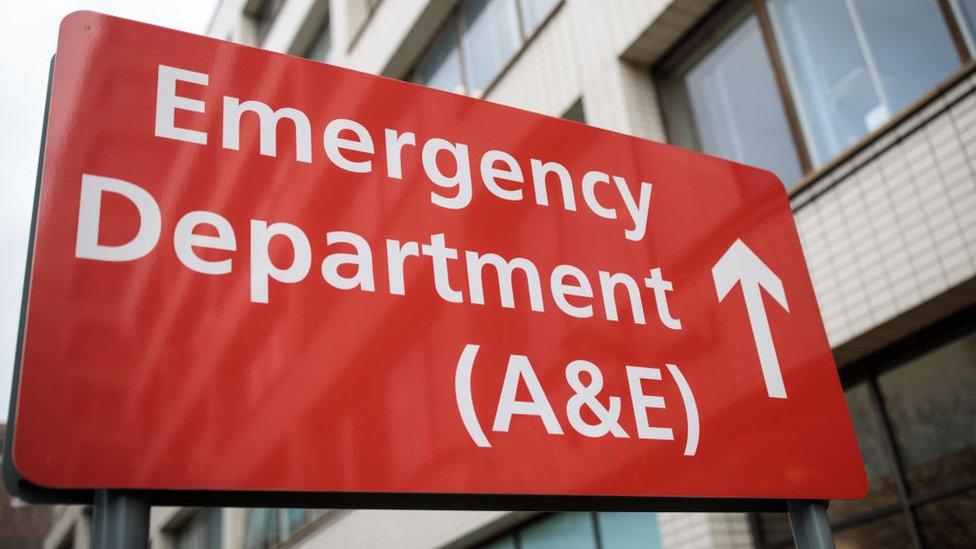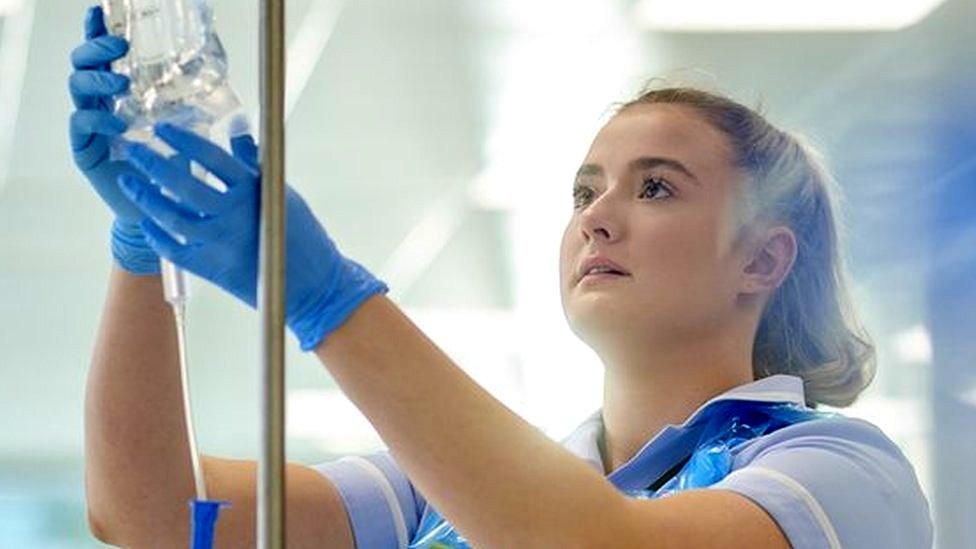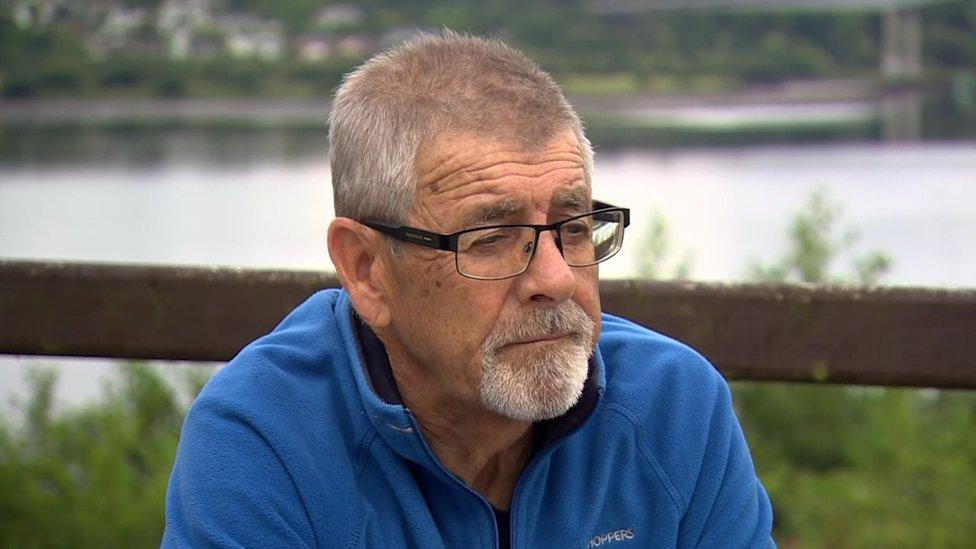Hospital waiting lists: 'I felt trapped in the system'
- Published
'It's that wait' - paying privately for a CT scan
A man who felt "trapped" in the hospital waiting list system said he had no option but to go private.
John Clarke, who has a rare bone condition, said his medication could not be changed - or other treatments progressed - without a CT scan.
It comes as new figures show 416,022 people in Northern Ireland are waiting for a first consultant-led outpatient appointment.
This is an increase of 14,821 on the previous quarter.
Almost half (203,682) of the patients were waiting for more than 52 weeks.
Mr Clarke's condition, fibrous dysplasia, is a disorder where normal bone and marrow is replaced with fibrous tissue, resulting in formation of bone that is weak and prone to expand.
The 52-year-old, who had been on a CT scan waiting list for more than six months, was seen in a matter of weeks when he attended a private clinic in Belfast.
The scan cost him £600.
The County Armagh man said it was "not a nice situation to be in" and that he was lucky he had some money set aside to access private health care.
He said he felt parts of the health service were working very well, but this depended on "other parts of the health service having to play their part".
Before the CT scan, he had been experiencing chest pains, which medics thought could be related to the bone disorder.
The results triggered an immediate change in his medication, also referrals to specialists in orthopaedics, rheumatology, and endocrinology.
He has since learned that lesions have been found on his pancreas and liver which require further investigation.
"The scan was necessary - just look what happened off the back of it - especially the change in medication," he said.
Waiting list anxiety
After being advised of a three-year wait for rheumatology, Mr Clarke has since paid for private treatment.
He is, however, on a waiting list for orthopaedics at Musgrave Park Hospital.
He said it was hard for anyone who had not been in the waiting list system to understand what people were going through.
With each day he became increasingly anxious about what was happening, he said.
In the past two years, waiting list funding has proved critical. From 2021 to date more than £180m has been spent.
Among the patients treated were those who had an urgent need for care including a suspected cancer diagnosis.
In 2023/24, £61.4m was allocated to waiting lists but in May £34.6m - money that should have gone on waiting lists - was pulled in order to balance the Department of Health's books following what it described as the "severely constrained" 22/23 budget set by the secretary of state.
The government's target is that by March 2024, no patient should wait longer than 52 weeks for a first outpatient appointment.
On Thursday, the Department of Health said that the number of patients waiting to be admitted for inpatient or day case treatment (119,095) has gone down by 2,784 in the last quarter from 31 March 2023 to 30 June 2023 and 8,446 in the last year (30 June 2022).
Despite a new service called My Waiting Times NI, which should provide patients with approximately how long they will have to wait, Mr Clarke was told his information was not available.
He said he felt it was unfair that he had to pay for a private scan after he had paid his taxes all his working life and that people in Northern Ireland should not be penalised for a failing political system.
"All the political parties should be back at work and in government. Politicians need to sit down and work it out, " he said.
'A system that is absolutely broken'
Director of the Royal College of Nursing in Northern Ireland Rita Devlin said the situation in hospitals is incredibly worrying.
"The trouble we have is that we have a system that is absolutely broken from front door to back door," Ms Devlin told BBC's .
"We don't have enough ability to keep people out of hospital and we can't get them out quick enough."
Ms Devlin said hospital staff are burnt out and they have real concerns over their mental wellbeing with the workload.

There are less nurses taking on more work across hospitals in Northern Ireland, according to the Royal College of Nursing
She also said that staff retention within hospitals is a huge issue across Northern Ireland and they are seeing remaining staff taking on more work.
Sinn Féin MLA Conor Murphy said work to reduce waiting lists could be done with a functioning executive.
"The secretary of state's last intervention on this was to give less money to the health service, which obviously exacerbated waiting lists and the general crisis in the health service and in our public services," he said.
"So, if the secretary of state has anything useful to do in this regard, he can ensure the public services are sufficiently funded and that he puts pressure on the DUP to get back into the executive so we can take decisions as we were in the process of doing in terms of transformation to try and reduce waiting lists."
However, DUP leader Sir Jeffrey Donaldson said restoring the executive "won't do anything in itself to change those waiting lists".
"What we need are the resources to drive forward reform of our health service and at the same time to give out hard pressed and hard working health care staff the resources that they need to deliver on driving down waiting times - but that requires the additional resource.
"Northern Ireland is underfunded at the moment. Having an executive back in place will not change that."
A spokesperson for the Department of Health said: "While the current budget deficit means that the department has been unable to maintain funding for waiting list initiatives at the same level as last year, £61.4m of funding is still being invested in 2023/24."
Related topics
- Published27 April 2023

- Published7 July 2023

- Published14 August 2023
